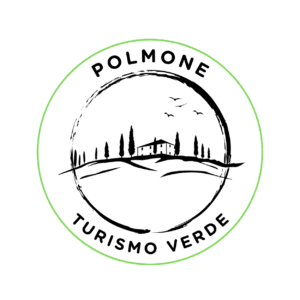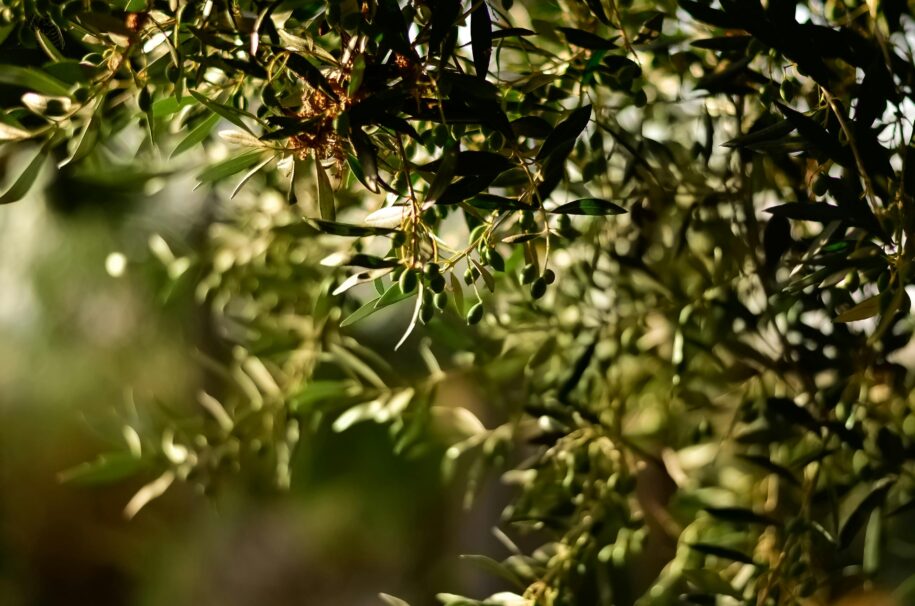Umbria, the green heart of Italy, is known for its rolling hills, picturesque villages and, of course, delicious olive oil. The region has a long tradition of olive oil production, dating back to the Etruscans and Romans. Today, Umbria is home to hundreds of olive presses, or Frantoios, each producing their own unique extra virgin olive oil.
For lovers of good food and authentic experiences, a visit to an olive oil producer in Umbria is an absolute must. On a tour of an olive press, you will learn all about the olive growing process, from picking to pressing and bottling. You can also taste different types of olive oil and learn how to recognise the best quality.
From olive tree to the litre bottle of extra virgin, how does it work?
The traditional methods of olive growing, picking, pressing and bottling are still widely used in Umbria.
Olive cultivation:
- In Umbria (with its hot dry summers and mild winters), olive trees are traditionally planted on hillsides, where they benefit from sunlight and drainage.
- The olive trees are pruned annually to achieve the right shape and thus optimise production. Fertilisation and weed control are essential for a healthy crop.
- After pollination of olive blossoms in spring, olives grow from the fertilised flowers during the summer.
Harvesting:
- The olive harvest, takes place in late autumn, when the olives turn ripe and black. The traditional method is manual picking using hand combs or booms. Mechanical harvesting machines are also increasingly used.
- It is important to pick the olives at the right time, as this affects the flavour and quality of the oil. Olives picked too early are bitter, while olives picked too late are too oily and tasteless.
Pressing:
- After picking, the olives are taken to the olive press as quickly as possible. Here they are washed and ground into a paste.
- The olive paste is then put under pressure to separate the oil from the solids (pulp). That oil obtained is then the extra virgin olive oil (or: oil extra virgin)
- The quality of extra virgin olive oil depends on several factors, including the quality of the olives, the pressing process and storage conditions.
Bottling:
- Olio extra virgin is filtered after pressing to remove impurities. It is then packaged in airtight bottles or cans.
- Storage conditions are important for the quality of the oil. Olio extra vergine should be stored in a cool, dark place, away from heat and light.
The most popular olive varieties in Umbria
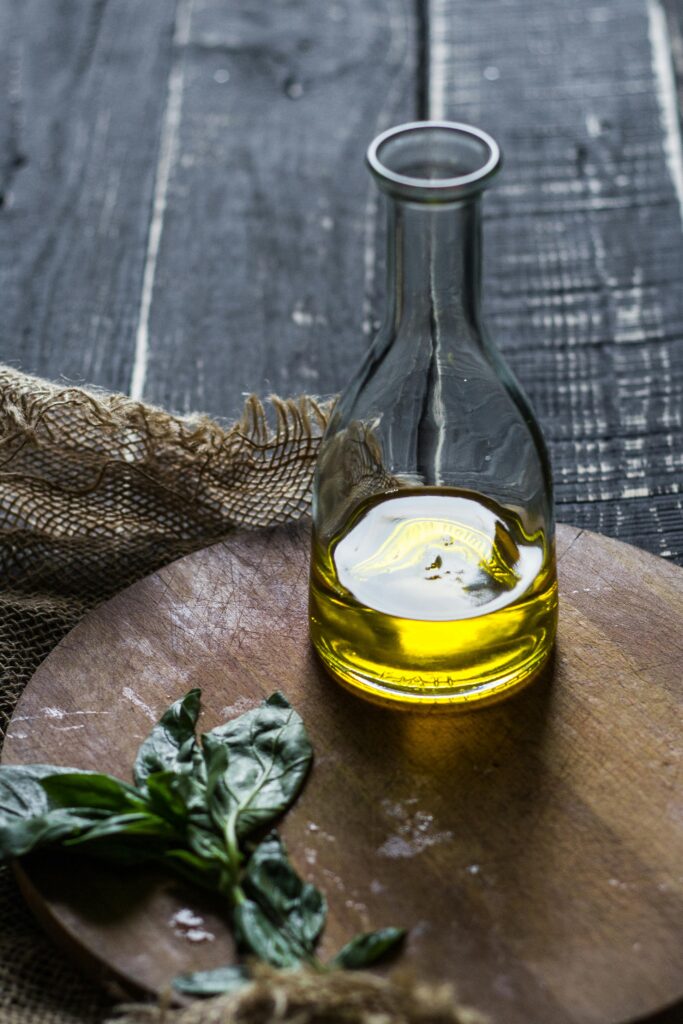
- Moraiolo: Originating from southern Umbria, this olive is known for its fruity flavour with notes of almond and artichoke. Moraiolo olive oil has a medium bitterness and spiciness, making it a versatile oil suitable for salads, dressings and pastas.
- Leccino: Widespread in Umbria, this olive produces a delicate oil with a grassy flavour and notes of apple and pear. Leccino olive oil has low bitterness and spiciness, making it perfect for salads, fish dishes and light sauces.
- Trebbiano: An olive from Umbria. It produces a robust oil with notes of wild herbs, artichoke and almond. Trebbiano olive oil has high bitterness and spiciness, making it perfect for grilling, stewing and game dishes.
- Voltoline: Also an olive from Umbria. It is known for its intense flavour with notes of artichoke, almond and pepper. Voltoline olive oil has a very high bitterness and spiciness, making it a spicy addition to salads, pastas and meat dishes.
An unforgettable experience
Visiting an olive oil producer is more than just tasting. It is a chance to experience the local culture and traditions up close. You will meet the passionate farmers who cultivate their olives and produce their olive oil with great care and attention. You will learn about the history of olive oil production in Umbria and the role olive oil plays in Italian cuisine and culture.
The perfect activity for spring and autumn travellers
An olive oil tasting is the perfect activity for spring and autumn travellers looking for peace and nature. Most olive mills are located in the countryside, where you can enjoy the beautiful views and fresh air. In spring and autumn, the weather in Umbria is mild and pleasant, perfect for hiking or cycling among the olive groves.
Several olive oil producers can be found within a 30 km radius of Polmone Turismo Verde. Check out the site, also translated into English Strada Olio DOP Umbria
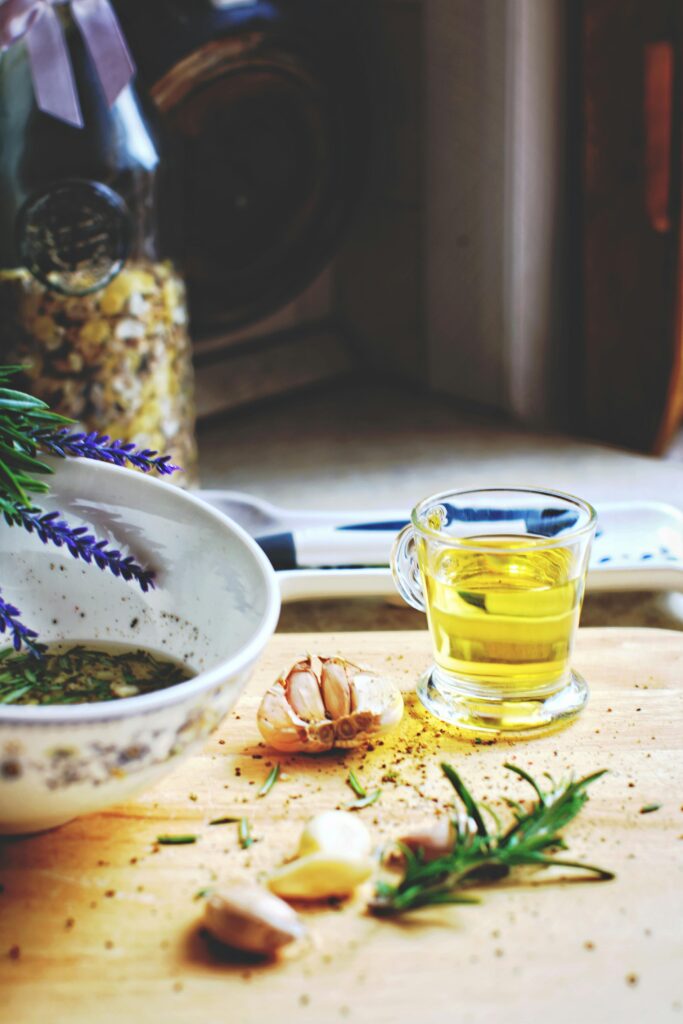
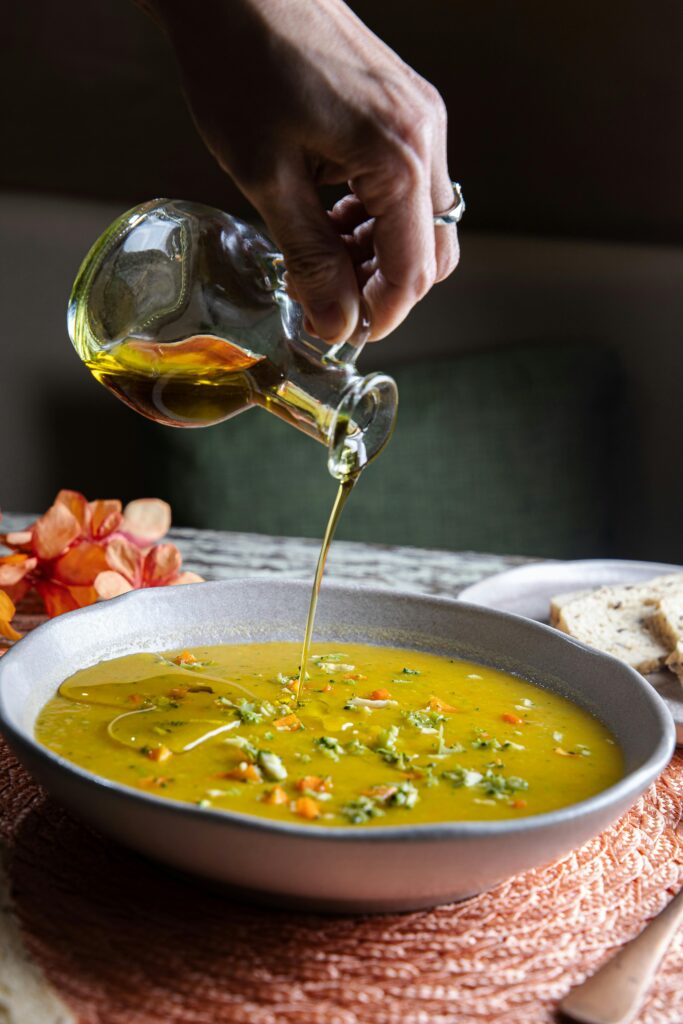
Here are a few options:
- Frantoio Fratini: (Collazzone (PG)) This family-run business has been producing olive oil since 1922. They offer tours and tastings, and their olive oil has won several awards. You can also dine there.
- Frantoio Cecci: (Allerona (TR)) Located in the hills north of Orvieto, this olive oil company offers tours and tastings. You can buy olive oil, wine and other local products here. You can also stay overnight in their agriturismo.
- Olio Decimi (Bettona PG)) Again, a family farm that has been farming in this area for centuries. They do so with respect for olive and earth. More than once they have taken care of abandoned olive groves in the area. All visits are by appointment, and can be booked in English.
Most of the companies on the Strada Olio DOP Umbria can be visited in spring and autumn. However, opening hours may vary, so it is advisable to contact the company you want to visit in advance.
Tips for visiting an olive oil farm:
- Book in advance: Especially in high season, it is advisable to book in advance for a tour and tasting.
- Wear comfortable shoes: You will probably do a lot of walking during your visit to an olive oil farm.
- Bring your camera: You will want to take beautiful photos of the olive groves, the olive mill and the surroundings during your visit.
- Ask questions: Farmers and staff at olive oil farms are experts in their fields. Don't be afraid to ask questions about the olive growing process, olive oil production and local cuisine.
- Taste everything! The best way to experience the authentic taste of Umbrian olive oil is to taste it. Taste different types of olive oil and pay attention to the taste, smell and texture.
Visiting an olive oil farm in Umbria is a unique and unforgettable experience. You will learn all about olive oil, taste delicious products and experience the hospitality of the locals. So if you are looking for an authentic Italian experience, be sure to add an olive oil tasting to your itinerary!
